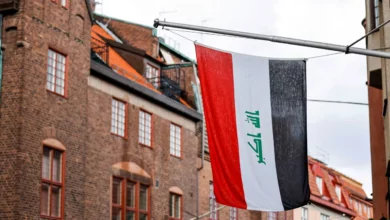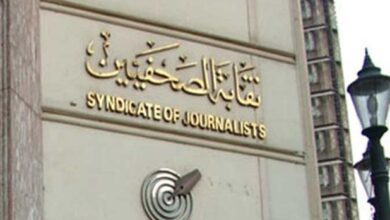I am no wordsmith, but I have a fascination with language. I am no grumpy grammarian, but I admire clean prose. I am no adherent to structure, but I appreciate good form.
As a self-attested news junkie, I spend many hours of the day sifting through content and coverage, perusing dozens of publications and essentially devouring the news in bulk. This mind-numbing overexposure to Egyptian news media has alerted me to a palpable crisis in the country’s journalistic form.
While I am particularly jubilant about Egyptian media’s newfound revolutionary impulse and the astounding margin of freedom already reached — taken by force and not bestowed by any sitting government — I am finding myself increasingly lamenting the demise of form. Whether it’s the reporting of non-news, such as an activist catching a flight from the United Arab Emirates to Cairo, a former parliamentarian visiting a mosque, or a negligible tweet from a pseudo-intellectual, a substantial proportion of content offers little to no insight whatsoever.
Alternatively, the dearth in analysis has become so immense that in many instances the insatiable desire to scoop has turned news into an assembly-line of capsule-sized, incomprehensible meaninglessness that desecrates the lofty principles of journalism. A profession meant to inform and in desperate need of reform is now a discombobulated cacophony of disorder.
In a revolutionary milieu, it is necessary to advocate for an end to conditionality and conformity, a shattering of crippling taboos and institutionalized decorum. It is an occasion to obliterate hierarchical thinking and intellectual patronage.
A socially conscious, responsible journalism can indeed exist without formative structures. But perhaps it is my concern about form itself that is problematic. Form is not the rigid structure or the intransigently stubborn rules of journalistic practice, such as the news “inverted pyramid” or the television “sound bite”— both being partially responsible for the end of audience commitment to knowledge, a blatant infantilization of citizens and the enshrinement of a lowest common denominator.
Instead, form is what makes something recognizable. What made media over the past 60 years of military rule recognizable was its uniformity and its conformity, both subsets of form. Since 25 January, the expectation of journalistic reformation quickly turned to deformity. More often than not, the news media — both state and private, embedded in their own respective political economic trenches — have done more to misinform than perform and more to “dis-inform” than inform.
So rather than a transformative competition over quality in which journalistic entities attempt to outperform one another (to the public’s benefit), instead we have a polarization that has transformed the media landscape and rendered it mediocre, haphazard and increasingly narcissistic. The self-absorption of “media autophiles” (those who love to see themselves in the media) is abundant, as anyone can become a celebrity if they are able to fit the frivolous motifs of baltagy, feloul, revolutionary, artist, youth, Islamist, etc.
While I am all for shattering the arrogance of self-ascribed political and economic renown, especially among Egypt’s elite, the purposeless reification, deification and vilification of every and any Egyptian in the media today is alarming and itself counter-revolutionary.
Tawfiq Okasha may not have deserved the notoriety he garnered for his television station, Al-Faraeen, but he also should not be a victim to archaic forms of information control. Privately owned Al-Dostour may not have violated Egypt’s new revolutionary impulse by confronting the executive branch, but neither the publication nor its editor should be viewed as martyrs of a looming era of Islamist takeover of the media.
Of course, future freedom of the press battles will be waged in the months and years to come as the entire structure of governance convulses from the seismic shifts facing Egypt today. With the Muslim Brotherhood digging its nails deeper and deeper into the corpus of state media, especially with the appointments of editors-in-chief of state newspapers, and the private media sharpening their fangs for a battle against the Islamists, any legislative or legal confrontation between these two camps will have long-lasting repercussions for journalism’s form and could lay to waste the necessary plurality and occasionally healthy media discord imperative for a viable democracy.
The refreshing news is that the days of journalistic complacency are over. The intoxicating uniformity of authoritarian media seems long gone, and the use of manufactured news as chloroform to anesthetize the public will no longer work for this generation.
For those who fear the Brotherhood will resurrect the media control of yesteryear, the writings on the wall are as revolutionary as cuneiform. What belies the formless fourth estate is a furious fixation with the newfound freedoms that promise a fecund future.
Adel Iskandar is a media scholar and lecturer at Georgetown University.
This article was originally published in Egypt Independent’s weekly print edition.




